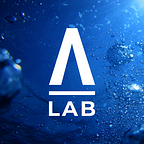Urban water security in the face of climate change: A tale of 2 cities — Part One
Listen to the Podcast
Podcast: Play in new window | Download
Show Summary
Believe it or not, the water crisis is here and impacts developed and developing nations alike. According to the United Nations, by 2025, nearly two billion people will be living in countries or regions with absolute water scarcity.
In this episode, we look at how two very different cities are tackling the water security problem and we explore what it’s going to take to secure this fundamental resource for future generations.
We’ll explore the trends, what countries are currently doing to address water security in the face of climate change and what’s getting in the way of taking action on water security?
Meet this episode’s experts
Ryan Brotchie Service Line Leader for Integrated Water Management GHD Digital
Ryan is the Service Line Leader for Integrated Water Management at GHD Digital working with water utilities and communities on solving water security challenges.
Connect with Ryan Brotchie on LinkedIn
Stela Goldenstein São Paulo Representative 2030 Water Resources Group
World Bank Group
Stela is the National Coordinator for the 2030 Water Resources Group in Brazil. Stela is a geographer and environmentalist and brings extensive experience from working with the public sector in Brazil, at the federal, state and municipal levels focusing on environmental, water resources, housing, and urban planning and development policies.
To learn more about the São Paulo program and others, you can visit the 2030 Water Resources Group website .
Connect with Stela Goldenstein on LinkedIn
Tim Barry Infrastructure Interface Manager Watercare Services Limited (NZ)
Tim is the Infrastructure Interface Manager for Watercare, an organisation of Auckland Council. Tim has more than 20 years’ experience, in the infrastructure sectors in New Zealand, Australia, China and the United Kingdom, delivering projects and operational services for municipalities and industry. At Watercare, Tim is responsible for interfacing with the transformational projects that are enabling growth in Auckland.
Connect with Tim Barry on LinkedIn
Part One Highlights
- 4:10 Ryan: Previously, the way we’ve managed [water security] is that we’ve had a pretty good historical understanding of stream flows and water availability. We’ve been able to make decisions based on that so we can look at a long term historical record. And we have a probabilistic understanding of how the system might operate into the future. Now, with climate change, that’s going out the window.
- 7:27 Tim: Anyone familiar with Auckland and has spent time here is also familiar with rain because this is not a place where we’re short of rain. But this last summer has been an absolute total exception to that. Since November 2019, we’ve tracked well below annual drought requirements.
- 8:48 Tim: We have a drought and at the same time, we also have a pandemic. We’ve had to find ways to communicate that triggered helpful responses, good reactions without it being too overwhelming and an emotional burden that comes with COVID issues.
- 9:35 Tim: In the last few years, we’ve been upping our digital capability and [ways of] working. We’ve now surfaced a platform we call Te Puna Wai. It means ‘the surfacing of knowledge’ and that’s a way of publishing insights from our federated data through the business. Using our geospatial data start point, it merges other data, so time series, transactional, customer, even supply chain information to give us better insights of our systems before system performance at near real-time.
- 11:38 Tim: Innovations and solving its water security problems will be piloted in communities and communities will be part of the solution.
- 14:35 Tim: Often desalination is the first thing that people come to when they’re thinking about augmented water supplies or resilience and in many respects, I wanted to put that statement because often it just becomes a bit lazy. Bashing salt out of water ultimately is something that can be done. But it’s a huge capital investment. And it changes the entire way your entire relationship with your customers, how you fund everything.
- 16:52 Tim: I think AquaLAB is reaching out in that way too by providing a platform approach rather than a geographic approach. I mean It doesn’t matter where you are, does it?
- 18:14 Ryan: What sort of level of uncertainty do we adopt? What level of risk do we need to manage? How much do you invest to be resilient against that? Or do you try and hedge your bets and have a more staged approach that you can monitor the situation?
- 20:46 Ryan: I think integrated water management is really a process and it’s a way of thinking. It’s about collaboration with stakeholders. It’s about systems thinking. Thinking about the whole water cycle and it’s about trying to achieve more balanced outcomes. It’s not just focusing on the lowest costs. It’s also thinking about sustainability and longer-term environmental outcomes and the wishes and desires of the community.
About Future Water
Hear from water innovation and digital transformation leaders from across the globe and discover the technology and innovations that are shaping the digital future of water. Proudly hosted by AquaLAB, powered by GHD Digital.
Subscribe
If you enjoyed today’s show, please subscribe on your platform of choice. We’d love your feedback, rating and review as well. Here’s a list of platforms you can currently subscribe on:
Connect with AquaLAB
AquaLAB is GHD’s global water innovation and knowledge hub. We inspire water industry leaders to explore novel ideas, openly discuss challenges, and experiment with technology to safeguard the world’s most precious resource for future generations.
If you’d like to learn more about AquaLAB, connect with us via our website or LinkedIn.
Listen to Part Two.
Originally published at https://aqualab.ghd.com on September 30, 2020.
